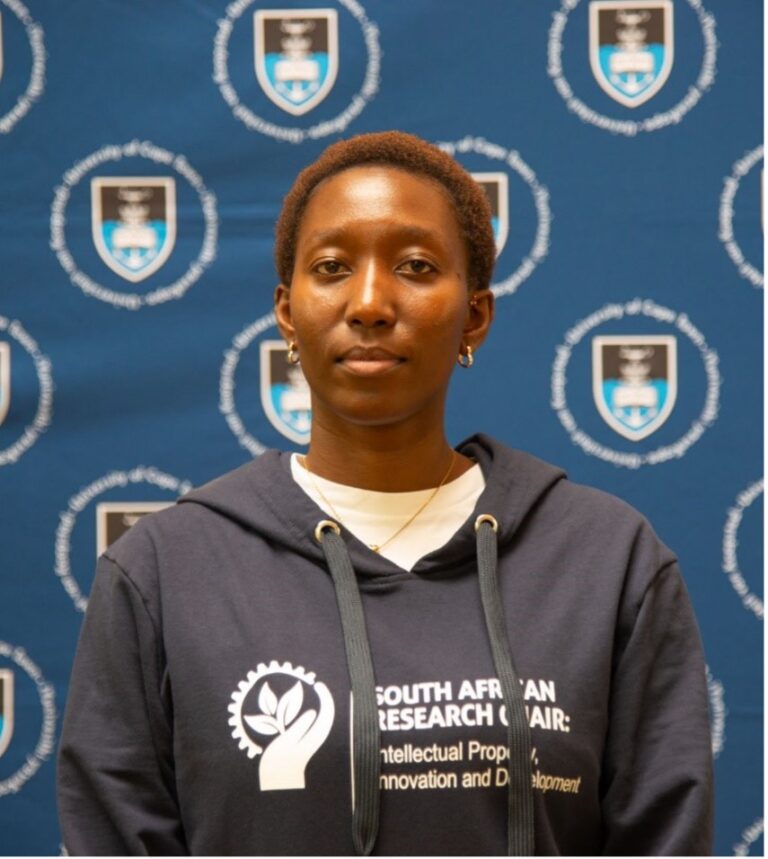
Ghati Nyehita is the 2024 Postdoctoral Research Fellow under the SARChI Research Chair in Intellectual Property, Innovation, and Development at the University of Cape Town. She holds a Master of Laws (LLM) from UCT and a Bachelor of Laws (LLB) from Kenyatta University, and she is also an advocate of the High Court of Kenya. Additionally, she has served as a research clerk for the Chief Justice of Namibia at the Supreme Court of Namibia.
Ghati’s doctoral thesis delved into an examination of how Kenya can achieve a more equitable distribution of music revenue between music artists and intermediaries under copyright law, taking into account how music is commercialized, existing legal structures, and incorporating principles from the Rawlsian theory of justice and the theory of paternalism. During her Ph.D., she developed an interest in innovation that takes place in maker spaces and innovation hubs. She was awarded the New and Emerging Researchers Fellowship for proposing an innovative research project that empowers women makers using IP Laws. Subsequently, she conducted extensive field and desk research on the intersection of the maker movement and IP laws, in the context of empowering racialized/marginalized women in South Africa. Her forthcoming publication, titled “Harnessing the Maker Culture as an Important Tool for the Inclusion of Women, Girls, and Marginalized Groups into the Innovation Paradigm,” delves into the findings and implications of this research.
Her PDRF projects continue research on the intersection of gender and IP law. The research will explore the role of IP in shaping the landscape of social innovation and labour market integration for refugee women in South Africa. The research will focus on two secondary objectives: firstly, to explore how South Africa can leverage on IP laws to foster the inclusion of refugee women within the innovation paradigm and facilitate their integration into the labour market. Secondly, the research will analyze the role of copyright in supporting innovation of non-conventional forms of creative expressions, particularly focusing on its impact on refugee women.




